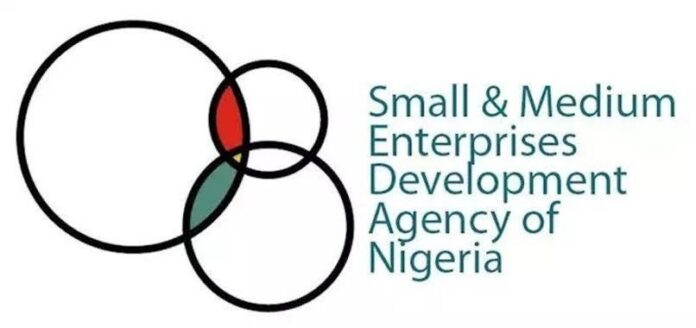The Small and Medium Enterprises Development Agency of Nigeria (SMEDAN) says administrative charges by Micro Finance Banks (MFBs) under its One Local Government, One Product (OLOP) project has been reviewed upwards to eight per cent.
Mrs Safiya Ballah, Director of Special Duties Department, SMEDAN, said in Abuja at its OLOP Stakeholders Meeting.
OLOP is a flagship programme of SMEDAN which promotes the development of at least one identified product per Local Government Area (LGA) in Nigeria, by empowering the Micro, Small and Medium Enterprises (MSMEs).
The programme which offers 70 per cent non interest loan and 30 per cent grant adds value and advance such identified raw material(s) to a branded, certified product with expanded market (including export) potentials.
The service charge being rendered by SMEDAN to the MFBs under the OLOP programme for its services to the cooperatives banks (beneficiaries) has been five percent.
Ballah noted that the upwards review of eight per cent was part of its reform agenda to make the OLOP scheme more effective and impactful in the country.
She said that SMEDAN’S attention was drawn to the programme due to the difficulties faced by the beneficiaries in accessing monies and intervention.
She also decried inability of most enterprises to perfect certification from relevant authorities such as the National Agency for Food and Drug Administration and Control and Standards Organisation of Nigeria and adherence to OLOP concept.
The director listed other OLOP reform agenda for effective implementation by stakeholders which included the promotion of membership registration with business membership organisation, to encourage beneficiaries.
According to her, the candidate enterprises should have evidence of bank transaction (corporate account) while there should be provision of business plan showing empowerment status and expansion plan under OLOP which are reviewed periodically.
Others include techniques for beneficiaries, promotion of information technology, exposing beneficiaries on importance of using ICT to run their businesses to attract patronage both locally and internationally.
Under the reform agenda, she noted that for effective OLOP implementation, there should be customise enterprise training of cooperatives societies to spur competition and annual OLOP products exhibitions.
On repayment of loan, she noted that it was very key and critical adding that it was introducing an innovation in its loan repayment.
Mr Levi Anyikwa, Deputy Director, Special Duties Department, SMEDAN, also urged all stakeholders to ensure the meeting have valuable information and ideas to enrich the reform being undergone by OLOP programme.
He said that the scheme had undergone a lot of repackaging specially with the assistance of the Japan International Cooperation Agency (JICA).
He said the meeting would ensure that stakeholders under the scheme operate on the same page as far as its implementation was concerned.




